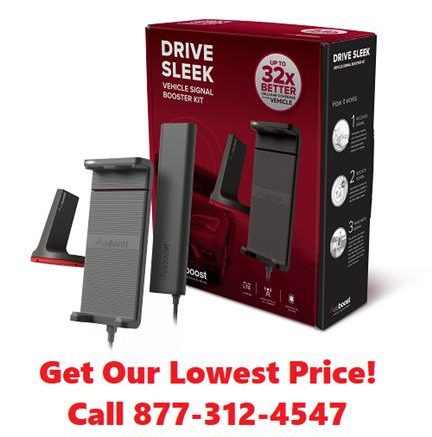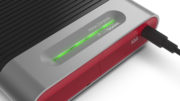Cars today get ever more exotic. With advances in manufacturing, you’re seeing aluminum bodies in cars under $40,000 now. You’re also seeing other exotic features like sunroofs that go from edge to edge.
That’s great and all but most cell boosters use magnet mount antennas. Magnets don’t work on aluminum or glass. So what should you do?
About a year ago I published weBoost’s official answer for this. They’ve started to include adhesive discs in all of their vehicle cell boosters so that the outdoor antennas can be used on any car. They say you should glue the antenna to the aluminum body though, and I disagree.
Glass is the way to go
I don’t quite understand why the folks at weBoost would tell you to stick the antenna to the body of the car. Yes they provide a way to clean the area if you choose to remove the antenna, but I just think you shouldn’t risk your car’s paint job unless you have to.
I would much rather advise you to stick the antenna to the rear window or sunroof (if the sunroof doesn’t move.) It should be possible to mount the antenna so it doesn’t block your rear view and then you can use any number of options to get it off without risking the paint. Razor blades work, so does Goo-Gone. Either way you just get back to nice clean glass.
Is there an issue with a cell booster in an aluminum car?
People have asked me this before. I get one of two questions:
-
Antennas are made out of aluminum. If I have an aluminum car, can’t I just turn the whole car into an antenna?
-
Antennas are made out of aluminum. Does that mean an aluminum car blocks cell signals?
So let’s look at these myths.
You can’t turn your entire car into an antenna, that’s just not how it works. First of all your car’s paint probably has metal flakes in it that would make it a poor antenna. Second that’s just not how antennas work. You can’t just make any hunk of metal into an antenna. An effective antenna is going to be just the right size.
But yes, an aluminum car blocks cell signals. So does a steel car, for that matter. That’s actually the point of a cellular booster… to increase the signal strength inside the car to compensate for poor signal. That poor signal is caused by the fact that all the metal in your car bounces cell signals away.
Getting to the heart of the question though, there’s nothing about an aluminum car that makes it any worse for cell signals than a steel one.
Should you have a cell booster in your car?
You should absolutely consider a cell booster if you spend a lot of time there and make a lot of phone calls. I’m sure you have experienced bad reception and it’s almost always when you’re running late due to traffic. You’re stopped on the highway with 5,000 of your friends and everyone is trying to call home to say they’re running late. By adding a cell booster you’re making your own signal more powerful and that means it will reach towers more easily. That means your signal gets through and the other guy’s does not.
If you’re looking for a cellular signal booster for home, office or vehicle use, check out the great selection at Solid Signal.




